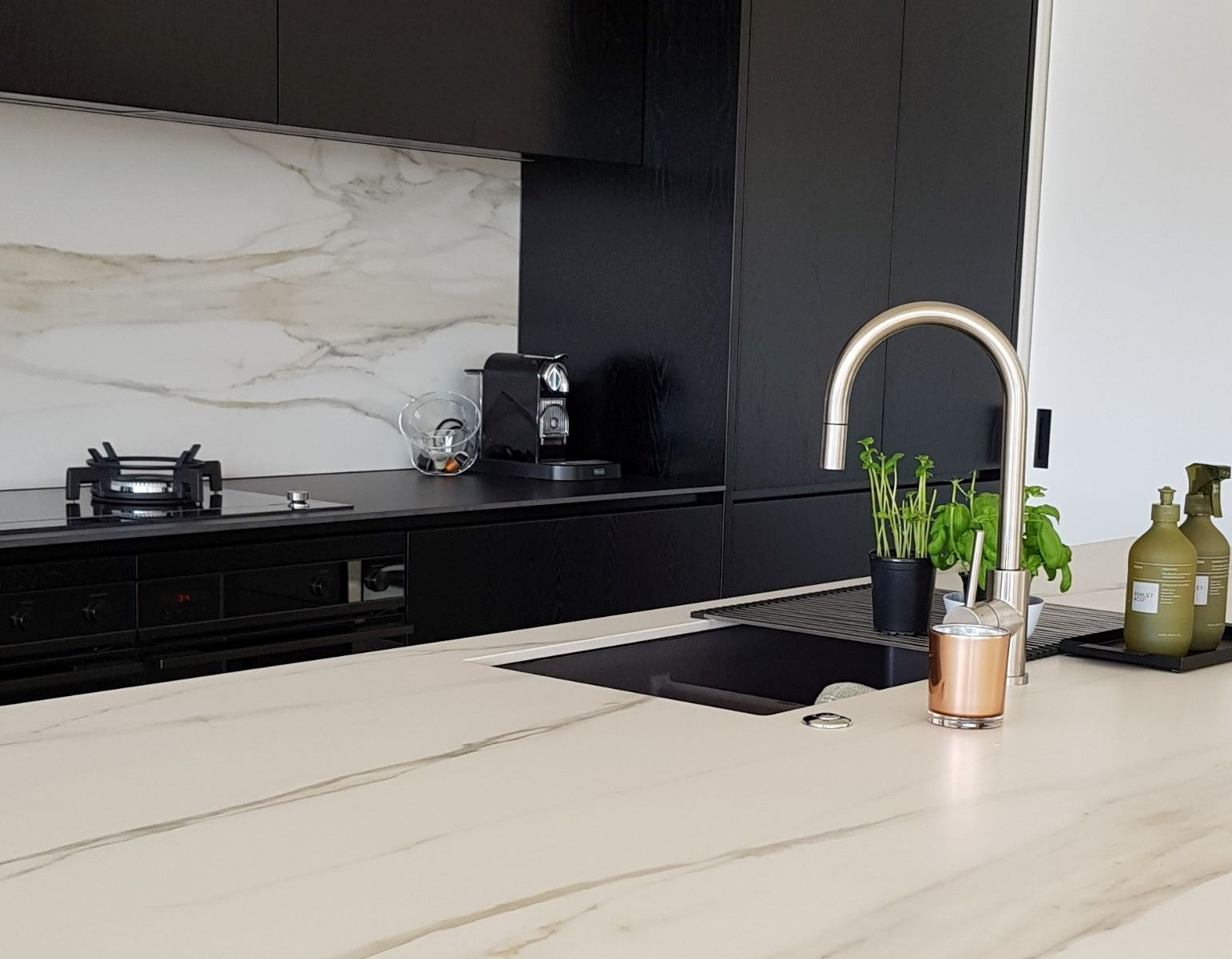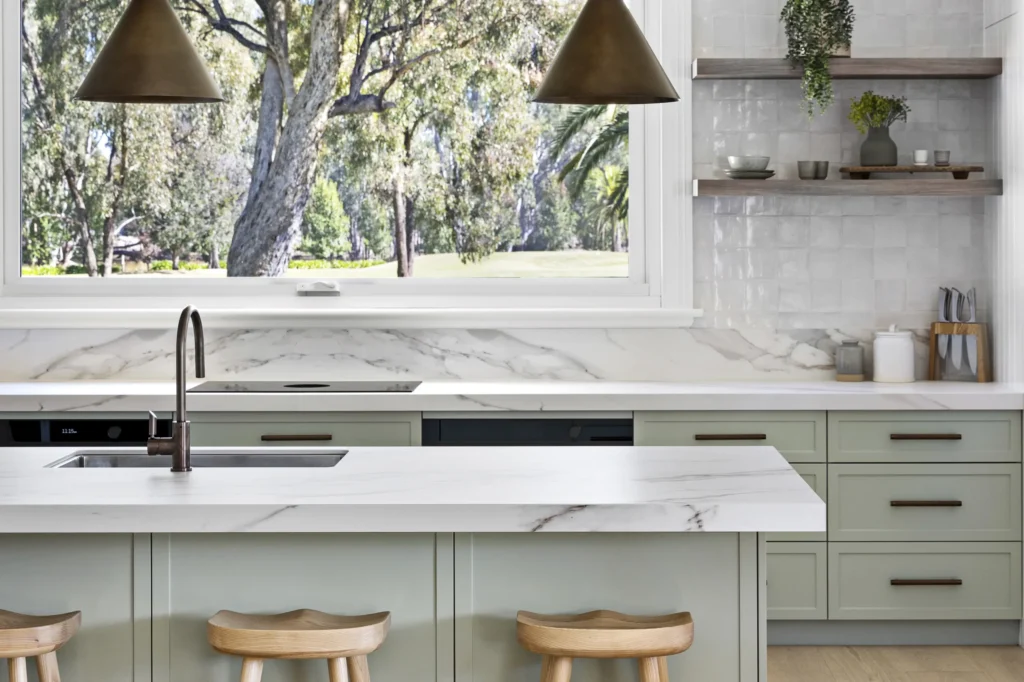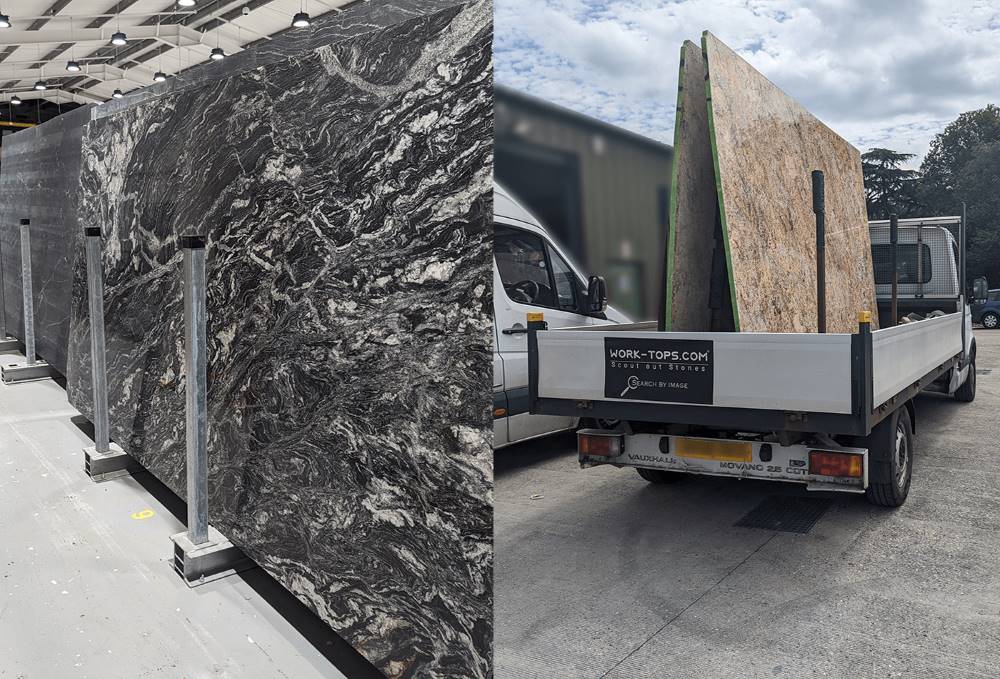Table of Contents
ToggleThe sleek aesthetics, robust durability, and incredible heat resistance of porcelain have cemented its place as a top choice in modern Australian kitchen design. Porcelain benchtops are famous for being highly resistant to heat, scratching, and staining. But while they are certainly low-maintenance, even the toughest materials benefit from consistent care.
Implementing a simple, regular maintenance routine is the key to ensuring your investment lasts a lifetime and keeps its pristine finish. Here is your definitive “How-To” guide outlining the 10 essential tips you need to Maintain Porcelain Benchtops
How to Maintain Porcelain Benchtops
Tip 1: Choose the Right Daily Cleaner (pH-Neutral)
The Action: Always clean your benchtop daily using warm water and a mild, pH-neutral detergent. This simple solution is highly effective and gentle on the finish.
The Avoidance: Never use harsh acidic cleaners (like vinegar, lemon juice, or strong limescale removers) or powerful alkaline products. These aggressive chemicals can, over time, dull the surface finish.
Tip 2: Use the Best Tools for the Job (Microfibre Cloths)
The Action: When wiping the surface, always use soft microfibre cloths or non-abrasive sponges.
The Avoidance: Avoid abrasive tools like steel wool, scouring pads, or harsh powdered cleansers, as these can create microscopic scratches and degrade the surface lustre.
Tip 3: Wipe Spills Immediately
The Action: Promptly wipe up all spills—especially oils, dyes, or highly pigmented liquids—with a damp cloth.
The Goal: Although porcelain is non-porous and highly stain-resistant, quick cleanup prevents sticky residue buildup and keeps your benchtop looking flawless.
How to Protect Porcelain from Damage and Stress
Tip 4: Avoid Direct Heat Contact (Always Use Trivets)
The Action: Always use trivets or heat pads for hot pots and pans straight off the stove or out of the oven.
The Reason: Porcelain has excellent heat resistance, but placing a scorching hot object directly onto a cold surface can cause thermal shock. This sudden temperature change can create internal stress and potentially lead to cracking, particularly in thinner slabs.
Tip 5: Protect the Surface from Cuts (Use a Cutting Board)
The Action: Always use a dedicated cutting board when preparing food.
The Avoidance: While porcelain is highly scratch-resistant, using a cutting board protects your benchtop from potential scoring and, equally important, helps keep your knives sharper and safer to use.
Tip 6: How to Prevent Chipping on Edges (Avoid Heavy Impact)
The Action: Handle heavy cookware with care, especially when maneuvering it near the sink cut-outs and exposed edges.
The Reason: Porcelain is hard, but like glass or ceramic tile, it can chip if it sustains a sharp, heavy blow to a vulnerability like a corner.
Long-Term Longevity and Professional Maintenance
Tip 7: Avoid Harsh Chemicals (No Bleach or Strong Solvents)
The Action: For disinfecting, stick to mild, porcelain-safe cleaning sprays or simply soap and water.
The Avoidance: Do not use high concentrations of bleach, strong paint removers, or other aggressive chemicals that can harm the finish over time.
Tip 8: Maintain Grout Lines and Joints
The Action: Regularly clean silicone joints and grout lines (if applicable) with a soft brush to prevent dirt and mould buildup.
The Check: Inspect joints periodically for any wear or gaps that may require professional re-sealing to prevent moisture ingress into your cabinetry.
Tip 9: When to Polish the Surface (Optional)
The Action: If your benchtop is several years old, you may optionally use a porcelain-safe polish to enhance the shine and restore its original lustre.
Note: Unlike natural stone, this is a cosmetic step and is not required for protective sealing.
Tip 10: Schedule Annual Professional Maintenance
The Action: Consider booking an annual check-up with a professional stone specialist.
The Benefit: A professional can provide deep cleaning and proactively repair any minor chips or flaws, ensuring your porcelain benchtop stays in showroom condition and maximizing its lifespan.
Conclusion: Maintaining Your Investment
Maintaining your porcelain benchtop is refreshingly simple. By consistently applying these 10 straightforward tips—focusing on gentle cleaning and proactive protection—you ensure your surface remains pristine, stylish, and functional for many years to come.
Ready to Invest in Porcelain? Emporium Stone provides the highest quality porcelain benchtops, expertly fabricated and installed to ensure maximum durability and lasting beauty. Contact our team today to view our extensive range and discuss your project!
FAQs (Quick Answers)
Q1: Are porcelain benchtops really scratch-proof?
A: Porcelain is highly scratch-resistant, making it excellent for daily kitchen use. However, no surface is 100% “proof” against industrial abrasives or specialized ceramic knives. It is always safest to use a cutting board.
Q2: Can I place hot pots directly on porcelain?
A: Porcelain has excellent heat resistance. For the best long-term care, and to eliminate the minimal risk of thermal shock damage, we always advise using a trivet.
Q3: How often should I polish a porcelain benchtop?
A: Unlike natural stone, porcelain does not require routine polishing for protection. If you wish to enhance the shine of an older, heavily used surface, applying a specialized polish every 1-2 years is sufficient.



